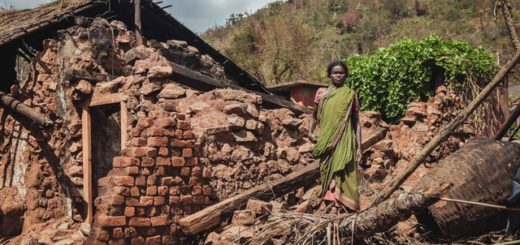Consultancy to support the Development of a Framework to address Sexual and Gender Based Violence at the Workplace- ILO
Introduction
In 2019, the International Labour Conference adopted the Violence and Harassment Convention, 2019 (No. 190) and its accompanying Recommendation (No. 206) which defines the term “violence and harassment” in the world of work as ‘a range of unacceptable behaviours and practices, or threats thereof, whether a single occurrence or repeated, that aim at, result in, or are likely to result in physical, psychological, sexual or economic harm, and includes gender-based violence and harassment’. C190 and R206 further recognizes the right of everyone to a world of work free from violence and harassment. The standards also recognize that such behaviours can constitute a human rights violation or abuse and extends protection to everyone who works, irrespective of contractual or migratory status, in both the formal and informal economy, workers who are volunteers, apprentices or job applicants and persons exercising the authority of an employer.
Gender Based Violence/Sexual harassment and sexual based violence are increasingly being reported at workplaces and in the community predisposing people to among other issues, HIV. This makes it critical for the government, employers and workers to remain engaged in mitigating against violence at work and in particular sexual harassment and Gender Based Violence (SGBV) as a key strategy for HIV mitigation, enhancing employee performance and productivity.
In 2021, the ILO supported COTU (K) to conduct an assessment on sexual and gender based violence at the workplace with a specific focus on Kilifi county. The assessment aimed at;
- Deepening the understanding of the GBV/Sexual Harassment situation at workplaces;
- Reviewing existing policies, HR manuals, guidelines, reporting tools and training materials on GBV/SH at the workplace;
- Understanding the mechanisms for reporting issues of GBV/ sexual harassment and access to justice;
- Recommending sustainable structures and measures for preventing and dealing with GBV/Sexual Harassment at the workplace.
Some of the findings of the assessment were that one out of five had experienced SGBV at the workplace during the last 3 years preceding the assessment. Job insecurity is a major driver of SGBV at the workplace as it is used as a tool for sexual exploitation while workers seek job promotions or protection. Ninety per cent of formal workplaces have policies on sexual harassment at the workplace either as stand-alone or integrated in other workplace policies such as Occupational Safety and Health or HIV and wellness policies however, there is a problem in translating the policies to action. For instance, only one in ten of those who experience SGBV at the workplace sought assistance through their workplaces though there could be disciplinary measures and procedures for addressing cases of SGBV internally. The informal sector on the other hand depends solely on the Government administrative processes in handling cases of SGBV.
Based on the findings, the assessment recommended amongst other measures, the enhancement of capacity to address SGBV at workplaces. It is against this background that the ILO in collaboration with COTU(K) want to develop a framework to address sexual harassment and GBV at the workplace to enhance prevention, protection and build partnerships to stem the vice in the world of work
Objective
To develop a framework to address Sexual Harassment and Gender Based Violence at the workplace to include on prevention, protection and strengthening structures for recourse mechanisms at workplaces.
Methodology
Conduct a desk review of existing frameworks to address Sexual Harassment and GBV at national, regional and global level with an inclination to the world of work and identify good practices at workplaces.
Conduct key informant interviews with national and county stakeholders engaged in SGBV prevention and response from a duty bearers and rights perspective
Hold consultative forums in partnership with COTU(K) on ideas for enhancing SGBV response at the workplace. Develop a framework consolidating practical measures/strategies to address sexual harassment and GBV at the workplace.
Develop an advocacy brief for ending violence and harassment in the world of work towards ratification of ILO Convention 190.
Expected Deliverables
- Inception Report outlining the detailed methodology/work-plan, key informant interview guide, list of potential stakeholders and report outline.
- Desk review of existing frameworks to address Sexual Harassment and GBV at national, regional and global level with an inclination to the world of work and identify good practices at workplaces.
- Preliminary Report including KII and consultative forums reports
- Final Report
- Advocacy brief
Qualifications and Experience
The consultant is expected to have:
- Relevant advanced degree (social sciences/public health/gender, development studies)
- Ten years experience in the field of gender, HIV, OSH, health and wellness with an inclination to workplaces.
- Good presentation and communication skills both orally and in writing,
- Good computer skills
- Good digital communication, tools/surveys skills
- Good research/data analyzing skills
- Excellent report writing skills
- Experience in working with UN agencies will be an added advantage
Timeline:
Q3 and Q4 2022
How to apply
Interested applicants should submit their technical and financial proposal and capability statement/detailed Curriculum Vitae to nboprocurement@ilo.org .
The financial proposal should be all-inclusive and include a breakdown (professional fees, travel related expenses, communications, utilities, consumables, insurance, etc.)
Deadline for application is 31st July 2022.








